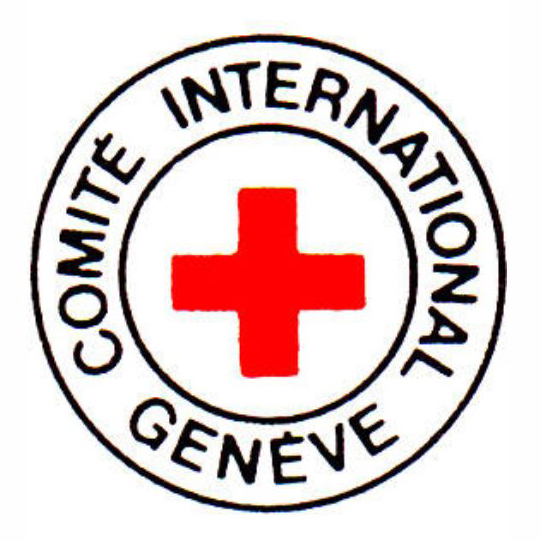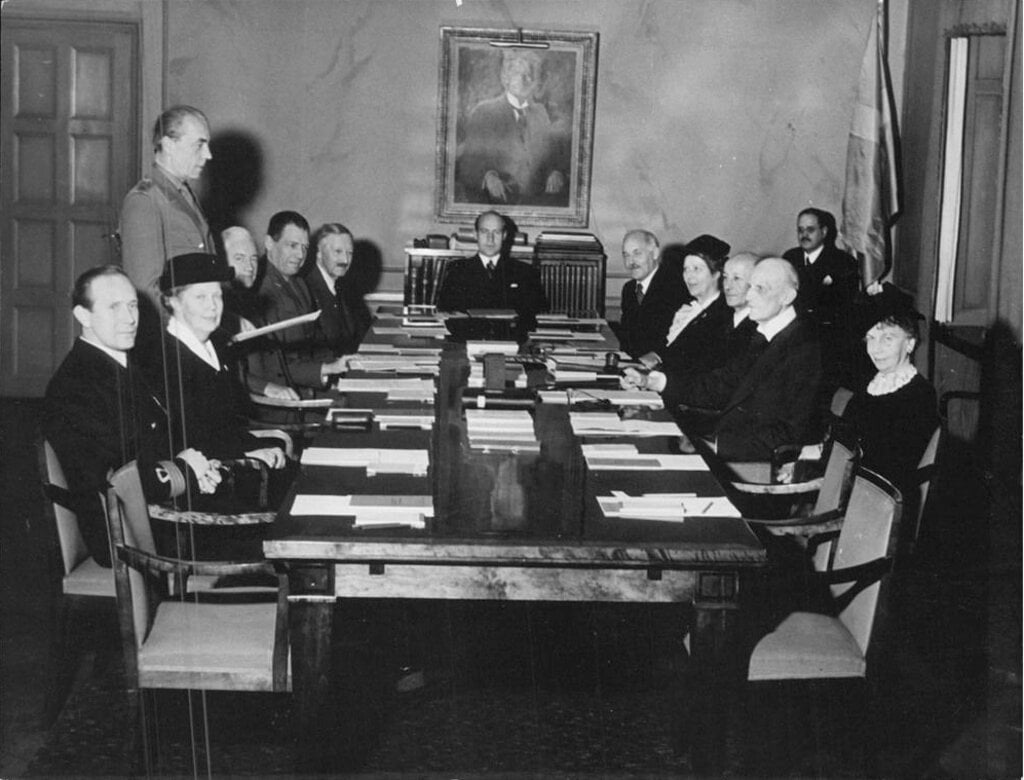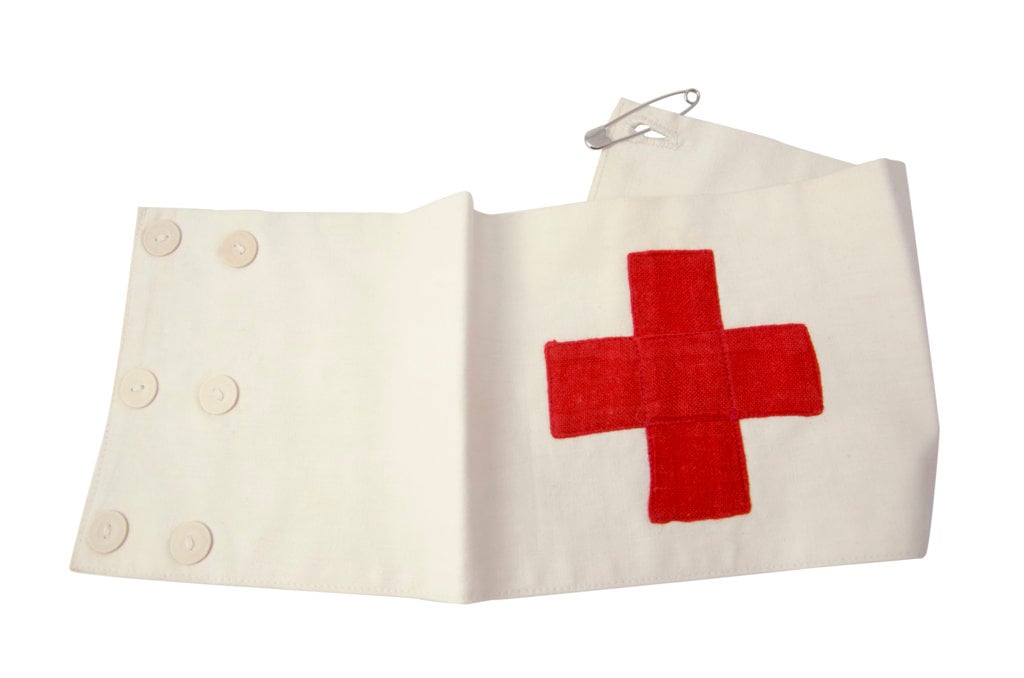International Committee of the Red Cross
Speed read
The International Committee of the Red Cross was awarded the Nobel Peace Prize for the great work it performed on behalf of humanity during World War II.

Full name: International Committee of the Red Cross
Native name: Comité international de la Croix Rouge
Founded: 1863, in Geneva, Switzerland
Date awarded: 12 November 1945
The white buses
The International Committee of the Red Cross was highly esteemed in Norway in 1945. This was because of the humanitarian efforts of the Swedish Red Cross led by Count Folke Bernadotte during the war. Using white painted busses emblazoned with Red Cross signs and Swedish flags, they recovered more than six thousand Norwegian and Danish prisoners from the German concentration camps during spring 1945.
"Helping the victims of war is not the only objective set by the Red Cross; in giving aid, it serves another purpose no less important, that of rescuing in the dark storm of war the idea of human solidarity and respect for the dignity of every human being."
Max Huber, Acceptance Speech, 10 December 1945.

The prisoner of war’s best ally
When WWII ended, the International Committee of the Red Cross was awarded the Nobel Peace Prize for the second time. In the spirit of the 1929 Geneva Convention, the Swiss aid organisation had conducted an impressive humanitarian effort for prisoners of war. Starting in 1939, thousands of volunteers from Switzerland registered prisoners in states that were signatories to the Convention. The volunteers ensured that the prisoners obtained written contact with their families, and provided packages of clothing, medicine and food as well. The International Committee of the Red Cross also conducted inspections of prison camps and organised prisoner exchanges between the warring parties.
"In their work for the wounded, for prisoners of war and for help to starving populations, the International Committee’s delegates … have far surpassed the record of achievement and service to mankind which they had previously established."
Philip Noel-Baker, Letter to the Nobel Committee, 31 January 1945.
ICRC and the Holocaust
The Norwegian Nobel Committee was unaware that the Red Cross was well informed of Nazi activities to exterminate the Jewish people. This fact first came to light in the 1980s, when it was revealed that the organisation had made a decision in 1942 to remain silent. The Red Cross feared that if the abuses were made public, reprisals against prisoners of war or military action against a neutral Switzerland could result. It also feared that the cooperation between the ICRC and the Swiss government would be terminated. The Red Cross has since expressed regret for its decision to suppress this vital information.
"… Its significance … lies fundamentally in the fact that human lives have been saved and in the feeling of solidarity engendered by help that has penetrated the iron walls erected by war."
Gunnar Jahn, Presentation Speech, 10 December 1945.

Learn more
Read the history of the Red Cross.
Read more about the work of Henry Dunant and the founding of the Red Cross.
Play a game!
The Red Cross Movement
Can people behave as they like during times of war? No, they can't. In this game, your mission as a camp commander is to run a prisoner of war camp without violating any human rights. You must follow the humanitarian standards outlined in the Third Geneva Convention. Have a try!
Disclaimer: Every effort has been made by the publisher to credit organisations and individuals with regard to the supply of photographs. Please notify the publishers regarding corrections.
Nobel Prizes and laureates
Six prizes were awarded for achievements that have conferred the greatest benefit to humankind. The 12 laureates' work and discoveries range from proteins' structures and machine learning to fighting for a world free of nuclear weapons.
See them all presented here.
